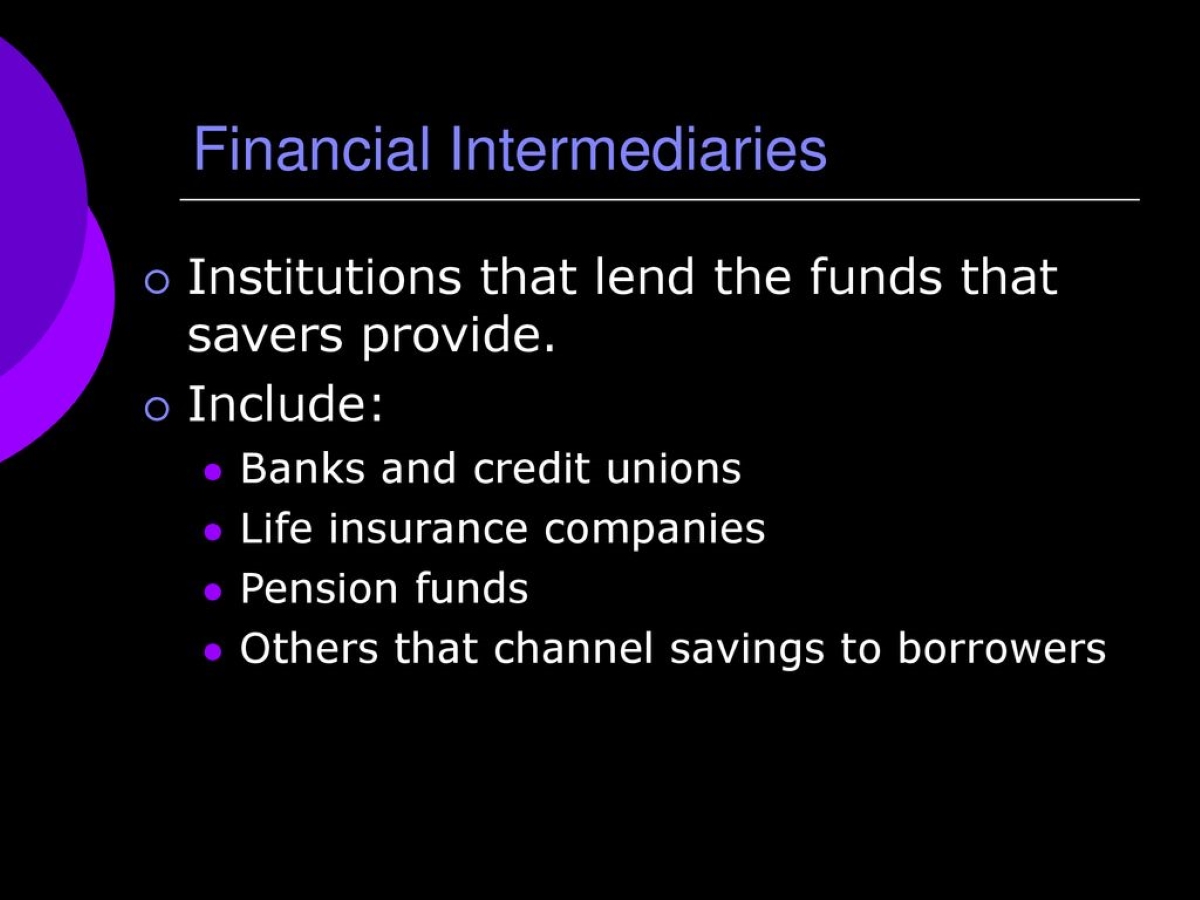Home>Finance>Why Are An Increasing Number Of Firms Focusing On Retirement Planning


Finance
Why Are An Increasing Number Of Firms Focusing On Retirement Planning
Published: January 21, 2024
Discover why finance firms are prioritizing retirement planning. Enhance your financial future with expert advice and strategies in retirement finance.
(Many of the links in this article redirect to a specific reviewed product. Your purchase of these products through affiliate links helps to generate commission for LiveWell, at no extra cost. Learn more)
Table of Contents
- Introduction
- Understanding the Changing Landscape of Retirement Planning
- The Benefits of Focusing on Retirement Planning for Firms
- Addressing the Retirement Needs of an Aging Workforce
- Attracting and Retaining Talent through Retirement Planning
- Increasing Employee Engagement and Productivity
- Enhancing the Overall Financial Well-being of Employees
- Mitigating Legal and Regulatory Risks
- Implementing Effective Retirement Planning Strategies
- Conclusion
Introduction
In today’s fast-paced and ever-changing financial landscape, retirement planning has become a crucial aspect not only for individuals but also for firms. The traditional notion of retiring with a gold watch and a pension plan is quickly fading away, making way for a more proactive approach to ensuring a comfortable and financially secure retirement.
As the population ages and the retirement landscape evolves, an increasing number of firms are recognizing the importance of focusing on retirement planning. This shift is driven by a multitude of factors, including the desire to attract and retain talent, address the retirement needs of an aging workforce, and enhance overall employee well-being.
By prioritizing retirement planning, firms can provide valuable resources and support to their employees, enabling them to effectively navigate the complexities of retirement savings, investment strategies, and post-retirement financial management.
This article will delve into the changing landscape of retirement planning, explore the benefits of focusing on retirement planning for firms, and provide insights into implementing effective retirement planning strategies.
Understanding the Changing Landscape of Retirement Planning
The landscape of retirement planning has undergone significant changes in recent years, influenced by factors such as increased life expectancy, changing workforce dynamics, and evolving investment options. These changes have necessitated a shift in the way individuals and firms approach retirement planning.
One of the key drivers of this change is the increasing life expectancy. People are living longer, which means retirement can last for several decades. This extended retirement period puts a greater emphasis on the need for sound financial planning and effective investment strategies to ensure a comfortable lifestyle throughout retirement.
Moreover, there has been a transition from the traditional pension plans, where the employer assumed much of the responsibility for providing retirement benefits, to more individualized retirement savings options, such as 401(k) plans and Individual Retirement Accounts (IRAs). This shift has shifted the burden of retirement planning onto the individual, requiring them to take an active role in saving and investing for their future.
In addition, the workforce demographics have also played a role in shaping the changing landscape of retirement planning. The baby boomer generation, one of the largest demographics, is reaching retirement age, leading to an influx of retirees. This has created a sense of urgency for individuals and firms to have a comprehensive retirement plan in place to ensure a smooth transition from the workforce to retirement.
Technological advancements have also impacted the retirement planning landscape. The rise of robo-advisors, online investment platforms, and intuitive financial apps have made retirement planning more accessible and convenient for individuals. These tools provide personalized advice, automate investment processes, and facilitate tracking progress towards retirement goals.
Overall, these changes have created a need for individuals and firms to adapt their retirement planning strategies. It is essential to stay informed about the evolving retirement landscape, seek professional guidance when necessary, and take advantage of the wide array of tools and resources available to optimize retirement savings and investment plans.
The Benefits of Focusing on Retirement Planning for Firms
While retirement planning is often viewed as a personal responsibility, it can also have significant benefits for firms that prioritize and support their employees’ retirement goals. Let’s explore some of the key advantages of focusing on retirement planning within a firm:
-
Attracting and Retaining Talent: In today’s competitive job market, offering comprehensive retirement benefits and support can be a compelling incentive for attracting top talent. Prospective employees value firms that prioritize their long-term financial well-being and provide opportunities for retirement planning. Similarly, existing employees are more likely to stay with a firm that values their future and provides the necessary tools and resources to plan for retirement.
-
Increasing Employee Engagement and Productivity: When employees have peace of mind about their financial future, they are more likely to be engaged and focused at work. By offering retirement planning assistance, firms can help alleviate financial stress, allowing employees to concentrate on their job responsibilities. This, in turn, can lead to increased productivity, improved morale, and a positive work environment.
-
Enhancing the Overall Financial Well-being of Employees: Retirement planning is not limited to retirement savings alone. It encompasses a holistic approach to financial well-being. By providing resources and education on topics such as budgeting, debt management, and investment strategies, firms can empower their employees to make informed financial decisions, leading to greater financial security both now and in retirement.
-
Mitigating Legal and Regulatory Risks: Retirement planning involves adherence to various legal and regulatory requirements, such as offering retirement plans that comply with applicable laws. By focusing on retirement planning, firms can ensure they fulfill their legal obligations, reducing the risk of penalties or lawsuits for non-compliance.
In summary, focusing on retirement planning can bring numerous benefits to firms, ranging from attracting and retaining top talent to increasing employee engagement and productivity. Additionally, it can enhance the overall financial well-being of employees and mitigate legal and regulatory risks. By prioritizing retirement planning, firms demonstrate their commitment to the long-term success and financial security of their workforce.
Addressing the Retirement Needs of an Aging Workforce
As the workforce continues to age, firms are faced with the task of addressing the unique retirement needs of their employees. This demographic shift requires a proactive approach to ensure a smooth transition from the workforce to retirement. Let’s explore some strategies that can help firms effectively address the retirement needs of an aging workforce:
-
Educating Employees: Many employees may not be well-versed in retirement planning and may need guidance on topics such as savings strategies, investment options, and healthcare considerations in retirement. Firms can offer workshops, seminars, and educational materials to help employees understand and navigate the complexities of retirement planning.
-
Offering Flexible Retirement Options: Recognizing that not all employees want to retire at a traditional retirement age, firms can provide flexible retirement options. This could include phased retirement programs, where employees gradually reduce their hours or transition into part-time roles, allowing them to maintain their connection to the workforce while transitioning into retirement.
-
Providing Access to Professional Advisors: Firms can partner with retirement planning experts and financial advisors to offer personalized guidance to employees. These professionals can help employees develop tailored retirement plans, taking into account factors such as individual financial goals, healthcare considerations, and optimal Social Security claiming strategies.
-
Reviewing Retirement Benefits: Firms should periodically review and update their retirement benefits offerings to ensure they align with the changing needs of their aging workforce. This may involve evaluating the suitability of existing retirement plans, considering the addition of new options, or enhancing employer contributions to retirement accounts.
-
Promoting Health and Wellness: Supporting the health and wellness of employees is key to addressing their retirement needs. Firms can offer wellness programs, health insurance options, and resources for maintaining physical and mental well-being. Healthy employees are more likely to enjoy a smooth transition into retirement and better manage their healthcare costs.
By addressing the retirement needs of an aging workforce, firms can foster a supportive and inclusive environment where employees can plan for a secure and fulfilling retirement. This proactive approach not only benefits individual employees but also contributes to the long-term success and sustainability of the organization.
Attracting and Retaining Talent through Retirement Planning
In today’s competitive job market, attracting and retaining top talent is a priority for firms. Offering comprehensive retirement planning opportunities can be a powerful tool in attracting and keeping valuable employees. Let’s explore how retirement planning can contribute to talent attraction and retention:
-
Competitive Advantage: By providing robust retirement planning benefits, firms differentiate themselves from their competitors. Prospective employees are more likely to be attracted to organizations that prioritize their long-term financial well-being, understanding that retirement planning is a critical aspect of their future stability and security.
-
Retention Incentive: Employees who feel supported and valued by their employers are more likely to stay with the organization. Offering retirement planning benefits demonstrates a commitment to the long-term success and financial security of employees, fostering loyalty and reducing turnover.
-
Improved Employee Satisfaction: Retirement planning contributes to overall employee satisfaction and well-being. When employees have a clear roadmap for their financial future, they experience reduced stress and worry, leading to increased job satisfaction and a positive work environment.
-
Career Development: Retirement planning can also provide opportunities for career development. Firms can offer training programs, financial workshops, and mentoring opportunities that empower employees to take control of their financial futures. This investment in employees’ growth and development demonstrates a commitment to their long-term success within the organization.
-
Positive Company Culture: A company that values and supports retirement planning fosters a positive company culture. It sends a message that the organization cares about its employees’ well-being and wants to be a partner in their financial journey. This type of culture creates a sense of camaraderie and loyalty among employees.
Overall, offering retirement planning benefits and resources can significantly impact talent attraction and retention. It demonstrates a firm’s commitment to long-term employee success, enhances overall job satisfaction, and creates a positive and supportive company culture. By prioritizing retirement planning as part of their employee benefits package, firms can position themselves as desirable employers and attract and retain top talent in an increasingly competitive job market.
Increasing Employee Engagement and Productivity
Employee engagement and productivity are crucial factors in the success of any organization. Focusing on retirement planning can contribute to both by reducing financial stress and providing employees with a sense of security and control over their future. Let’s explore how retirement planning can increase employee engagement and productivity:
-
Financial Peace of Mind: Employees who have a solid retirement plan in place experience less financial stress. By providing resources and support for retirement planning, firms help alleviate this stress and allow employees to concentrate on their work responsibilities. This, in turn, leads to higher job satisfaction and increased engagement.
-
Goal Clarity: Retirement planning involves setting specific financial goals and timelines. When employees have a clear understanding of their retirement goals, they can align their work objectives to meet those goals. This clarity helps employees stay focused and motivated, resulting in increased productivity.
-
Financial Education: Retirement planning often involves financial education and knowledge-building. By providing access to financial literacy resources, workshops, and seminars, firms empower employees with the tools they need to make informed financial decisions. This education enhances employees’ financial confidence, allowing them to better manage their overall financial well-being, including their work-related finances.
-
Long-Term Perspective: Retirement planning encourages employees to think beyond their immediate job responsibilities and consider their long-term career and financial goals. This broader perspective can foster a sense of purpose and commitment to the organization’s success. Employees who see their futures tied to the success of the company are more likely to be engaged and motivated.
-
Reward and Recognition: Retirement planning can be recognized and rewarded as part of an organization’s employee recognition program. Acknowledging and celebrating employees’ efforts and progress in their retirement planning journey reinforces a culture of appreciation, boosting morale and motivation.
By offering retirement planning opportunities, firms demonstrate their commitment to the financial well-being of their employees. This commitment fosters a sense of trust, loyalty, and engagement among employees, resulting in increased productivity and a positive work environment. A workforce that feels financially secure and supported in their retirement planning is more likely to be motivated, focused, and actively contribute to the organization’s success.
Enhancing the Overall Financial Well-being of Employees
Retirement planning is not solely about preparing for the future; it also contributes to enhancing the overall financial well-being of employees in the present. By prioritizing retirement planning, firms can provide resources and support that go beyond retirement savings, positively impacting employees’ financial health. Let’s explore how retirement planning enhances the overall financial well-being of employees:
-
Financial Education: Retirement planning often involves financial literacy and education. By offering resources, workshops, and training on topics such as budgeting, saving, and investing, firms empower employees with the knowledge and skills to make informed financial decisions. This education extends beyond retirement planning and benefits employees in all aspects of their financial lives.
-
Debt Management: Retirement planning encourages employees to assess their debt situation and develop strategies to manage and reduce debt. By providing guidance and support in debt management, firms help employees alleviate financial stress and work towards a more stable and secure financial future.
-
Emergency Preparedness: Retirement planning teaches employees the importance of building an emergency fund to handle unexpected financial challenges. This emergency fund can be instrumental in protecting employees from financial crises, providing a safety net beyond retirement savings.
-
Improved Financial Decision-making: Retirement planning fosters a mindset of thoughtful and strategic financial decision-making. Employees learn to evaluate their financial priorities, make informed choices about spending and saving, and prioritize long-term financial goals. This improved decision-making extends to other areas of their financial lives, leading to better financial outcomes.
-
Healthcare Considerations: Retirement planning also involves considering healthcare expenses in retirement. By educating employees on healthcare options and costs, firms help employees better prepare for the financial implications of healthcare in retirement, reducing the risk of financial strain and enhancing overall financial well-being.
By focusing on retirement planning, firms provide a holistic approach to employees’ financial well-being. Investing in financial education, debt management, emergency preparedness, and improved decision-making benefits employees in their daily lives, beyond retirement planning. By empowering employees to make sound financial choices and build a strong financial foundation, firms create a workforce that is more financially resilient and better equipped to handle life’s financial challenges.
Mitigating Legal and Regulatory Risks
Implementing effective retirement planning strategies not only benefits employees but also helps firms mitigate legal and regulatory risks. As retirement planning involves adherence to various legal requirements, focusing on compliance can safeguard firms from potential penalties, lawsuits, and reputational damage. Let’s explore how retirement planning can help firms mitigate legal and regulatory risks:
-
Compliance with Retirement Plan Regulations: Retirement planning involves offering retirement benefits that comply with applicable laws such as the Employee Retirement Income Security Act (ERISA) in the United States. By adhering to these regulations, firms ensure they provide retirement plans that meet the legal requirements, reducing the risk of penalties or lawsuits for non-compliance.
-
Disclosure and Reporting Requirements: Retirement planning often requires firms to provide employees with essential information about their retirement benefits. This includes clear and timely communication about plan features, investment options, fees, and participant rights. By fulfilling these disclosure and reporting requirements, firms demonstrate transparency, maintain trust, and mitigate the risk of legal disputes or regulatory investigations.
-
Prudent Fiduciary Responsibilities: Firms sponsoring retirement plans have fiduciary responsibilities to act in the best interests of participants. This includes prudently selecting and monitoring plan investments, ensuring reasonable fees, and managing plan assets responsibly. By fulfilling these fiduciary obligations, firms protect themselves from potential lawsuits and regulatory scrutiny.
-
Compliance with Anti-Discrimination Laws: Retirement plans must comply with anti-discrimination laws that prohibit unfair treatment based on protected characteristics such as age, gender, or disability. Ensuring equal access to retirement benefits and avoiding discriminatory practices reduces the risk of legal action and promotes a fair and inclusive work environment.
-
Data Security and Privacy: Retirement planning involves the collection and management of sensitive employee information. Ensuring the security and privacy of this data is crucial to comply with data protection laws and regulations. By implementing robust data protection measures, firms protect themselves from data breaches, legal penalties, and reputational damage.
A proactive approach to retirement planning that emphasizes compliance with legal and regulatory requirements minimizes the risks associated with non-compliance. By staying informed about retirement plan regulations, engaging legal counsel or retirement plan consultants, and implementing necessary controls, firms can navigate the complex legal landscape surrounding retirement planning and protect their interests from potential legal and regulatory challenges.
Implementing Effective Retirement Planning Strategies
Implementing effective retirement planning strategies is crucial for firms to support their employees’ financial well-being and navigate the complexities of retirement savings. By following key strategies, firms can ensure their retirement planning initiatives are successful and beneficial for employees. Let’s explore some effective strategies to implement:
-
Educate and Inform: Provide comprehensive educational resources to employees about retirement planning, including workshops, seminars, and online tools. This education should cover retirement savings options, investment strategies, and post-retirement financial management.
-
Offer Retirement Plans: Implement and maintain retirement plans such as 401(k) or pension plans, ensuring they meet legal requirements and provide options for contributions, employer matches, and investment choices. Consider engaging retirement plan consultants or advisors to assist in plan design and administration.
-
Provide Professional Guidance: Offer access to financial advisors or retirement planning experts who can provide personalized advice and guidance to employees. These professionals can help employees develop tailored retirement plans aligned with their financial goals.
-
Promote Automatic Enrollment and Escalation: Encourage employees to participate in retirement plans by implementing automatic enrollment features. Additionally, consider implementing automatic escalation, gradually increasing employees’ contribution rates over time to help them save more for retirement.
-
Incorporate Financial Wellness Programs: Implement financial wellness programs that go beyond retirement planning and encompass overall financial health. These programs can include budgeting assistance, debt management resources, and guidance on improving credit scores.
-
Monitor and Review: Continuously monitor the performance and effectiveness of retirement plans, including investment options and fees. Regularly review the retirement planning strategies to ensure they align with employees’ needs and evolving market conditions.
-
Encourage Regular Retirement Check-ins: Create an environment where employees are encouraged to review and reassess their retirement plans regularly. This can involve annual retirement plan statements, retirement planning workshops, and opportunities for employees to consult with retirement planning professionals.
-
Cultivate a Supportive Culture: Foster a workplace culture that values retirement planning and supports employees on their journey. Encourage open discussions about retirement goals, provide recognition for retirement planning milestones, and foster a supportive environment where employees can seek guidance and share experiences.
By implementing effective retirement planning strategies, firms can empower their employees to achieve their financial goals and secure a comfortable retirement. The key is to provide comprehensive education, offer retirement plan options, provide professional guidance, and continuously monitor and review the effectiveness of the strategies. A supportive culture that promotes financial wellness further enhances the success of retirement planning initiatives within the organization.
Conclusion
Retirement planning has become a critical aspect for both individuals and firms in today’s financial landscape. As the retirement landscape continues to evolve, it is essential for firms to prioritize retirement planning to benefit their employees and mitigate legal and regulatory risks.
By focusing on retirement planning, firms can attract and retain top talent, increase employee engagement and productivity, enhance the overall financial well-being of their workforce, and minimize legal and regulatory risks. Offering comprehensive retirement planning benefits and resources demonstrates a commitment to employees’ long-term success and financial security.
To implement effective retirement planning strategies, firms should prioritize education and information, offer retirement plans and professional guidance, promote automatic enrollment and escalation, incorporate financial wellness programs, and cultivate a supportive culture that fosters open discussions and regular check-ins on retirement goals.
By following these strategies, firms can empower their employees to make informed decisions about their financial futures, alleviate financial stress, and work towards achieving their retirement goals. Implementing effective retirement planning initiatives not only benefits employees but also contributes to a positive work environment, increased productivity, and the long-term success of the organization.
In conclusion, retirement planning is a vital component of overall financial well-being, and firms that prioritize and support their employees’ retirement goals will reap the benefits of a engaged and prosperous workforce.














